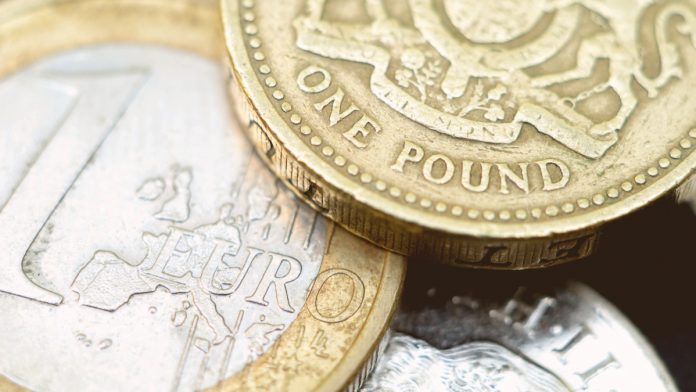- Pound (GBP) falls for a third day
- BoE is expected to cut rates next week
- Euro (EUR) rises modestly
- Eurozone manufacturing activity reaches a 3 year high
The Pound-Euro (GBP/EUR) exchange rate is falling on Friday for a third straight session. The pair fell 0.06% in the previous session, settling on Thursday at €1.1761. It traded between €1.1749 and €1.1796. At 08:30 GBP/EUR trades -0.07% at €1.1753. The pair is on track to book gains of 0.2% this week, the third straight week of gains.
The pound is falling for a third straight day today as investors look ahead to the Bank of England’s interest rate decision next week. The BoE is expected to cut interest rates by 25 basis points on May 8th as U.S. President Trump’s tariffs affect the global growth outlook. Some economists even believe that the Bank of England will need to ramp up its gradual pace of rate cuts across the year.
Bank of England governor Andrew Bailey last week said he was taking the risks posed by Trump’s tariffs very seriously. The IMF also downgraded UK growth forecasts owing to the likely impact of trade tariffs.
Until now, the Bank of England has taken a gradual, careful approach to cutting rates, doing so just three times since August 2024. However, Trump’s tariffs are expected to sap growth and slow inflation, which could justify a more aggressive approach to rate cuts.
The euro is inching higher after the eurozone manufacturing showed more signs of stabilisation in April. Manufacturing output grew at the fastest pace in just over three years despite manufacturing activity remaining in contraction. The manufacturing PMI rose to 49 in April, up from 48.6 in March, marking its highest level in 32 months; however, it remains below the 50 mark separating growth from contraction.
The data suggests that the manufacturing sector is stabilising, although this is a surprise given the many uncertainties and shocks in recent months.
Attention will now turn to eurozone inflation data, which is expected to ease towards the ECB’s 2% target, down from 2.2% in March. The ECB cut interest rates by 25 basis points in the April meeting and is expected to reduce rates by a further 25 basis points.





